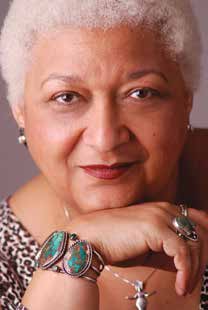
By Jewelle Gomez–
Ever since the defeat of former Vice President Kamala Harris in her bid for the U.S. presidency, I’ve been thinking about how many people in this country are afraid of women. Harris was the most qualified candidate for president since, well, since Hillary Clinton. Like Clinton, Harris was irrelevant to a population who still lives in the time of the Salem Witch Trials of 1692. Being born and raised in New England, I continue to feel that era as a cautionary tale: women who display their independence, intelligence, and gift for healing must be crushed. Or, in the case of Salem, hanged, as at least 15 women were.
From the beginning of time, the (male) writers of history have insisted that women are the root of all that is wrong with the world—from Eve’s curiosity for knowledge to women’s insistence on controlling our own reproductive organs. This predisposition to demonize women is sometimes called hate or misogyny. I believe, however, it’s more accurately identified as gynophobia—that is, fear of women.
Gynophobia is why men didn’t (many still don’t) want women to vote or drive cars or have their voices heard in public. When women find a reason to band together, whether it’s a book club or basketball team, this solidarity is often met with derision and dismissal. If members of a book club never read a book, the power is in their connection. The fear seems to be that women—who already have access to gifts not available to men, such as child bearing and heightened sensory awareness—would use our improved social status to take advantage of men, ultimately defeating patriarchal supremacy. It’s much like some white people’s fear of people of color gaining power, because then we’d treat them as badly as they’ve treated us.

Yet some nations have overcome their fear and been able to entrust their well-being to women warriors. Southwest African leader Nzinga (1583–1663), Indian former Prime Minister Indira Gandhi (1917–1984), and Mexican President Claudia Scheinbaum Pardo (1962–) are just a few. After recently watching a string of films about British queens—Elizabeth (early Cate Blanchett is brilliant), Victoria (mid-career Judi Dench is magnificent), The Queen (Helen Mirren is always first rate, including in her portrayal of Elizabeth II)—I understood that, for a woman to be a national leader, she had to be a warrior.

I’m not glorifying the reigns of these past royals as exemplary or progressive; I’m simply pointing out how women leaders are embattled from the moment they step into the leadership’s sensible shoes. Attacks are both physical—seven assassination attempts on Victoria, for example—and personal. (Who wants to be called a “Virgin Queen”?)
The last U.S. presidential campaign was fraught with so much violent rhetoric directed at Harris that many feared for her life. The current president continues to use bullying as a way of expressing his power, and too many citizens admire him for it. Whether it’s disrespecting fellow statesman Volodymyr Zelenskyy or the string of epithets he’s flung at female political rivals … nasty, dumb, horseface, crazy as a bedbug, filthy, ugly … the list of his targets and corresponding verbal abuse go on. If a woman stooped to that type of bullying, she’d be castigated in every newspaper in the country. When Clinton called aggressive Trump followers a “basket of deplorables,” which is a mild rebuke by any standards, it haunted the rest of her campaign.
Women have treasured our democracy here in the U.S. even as horrifically flawed as it has been from the beginning. No one seems to have heard the old Scottish saying, “Do not poke holes in your own boat.” The current administration is more than poking holes; it’s taken a hatchet to our vessel and the ship of state is floundering. Which warrior women will step forward to staff the lifeboats?
The late Queen Elizabeth II said, “It has been women who have breathed gentleness and care into the harsh progress of mankind.” It is time for women to work with one of our greatest witchy gifts: being more than one thing at a time. Breathing gentleness is fine, but breathing fire is what we need right now.
Jewelle Gomez is a lesbian/feminist activist, novelist, poet, and playwright. She’s written for “The Advocate,” “Ms. Magazine,” “Black Scholar,” “The San Francisco Chronicle,” “The New York Times,” and “The Village Voice.” Follow her on Instagram and Twitter @VampyreVamp
Leave Signs
Published on March 13, 2025
Recent Comments